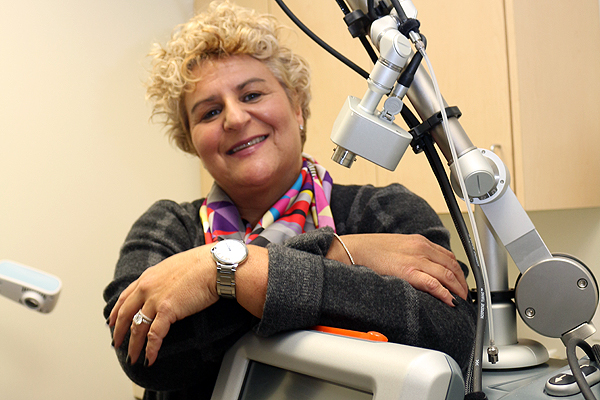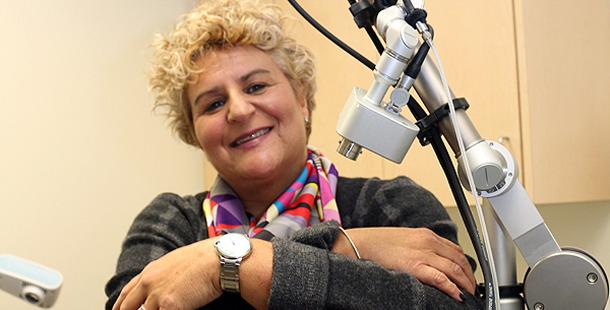Fay Weisberg uses cutting edge technology to rejuvenate menopausal women

LET’S TALK, LADIES: Fay Weisberg says she hopes women understand vaginal changes are a part of the natural menopause cycle.
York Mills gynecologist Fay Weisberg wants to talk about to you about your vaginas, ladies.
The 56-year-old, who helms the First Steps Fertility Clinic at Yonge and York Mills, has introduced MonaLisa Touch, a laser treatment that helps reverse the urogenital atrophy in women aged 40 to 65 plus.
It’s part of her FemRenew clinic, one of the first programs of its kind offering a hormone-free treatment. It also aids in boosting the confidence in breast cancer patients, who, in some cases “feel less feminine”.
“I think it’s groundbreaking for Canada,” Weisberg said of MonaLisa Touch, adding people from across the country have contacted her about the clinic. “It’s the first treatment of its kind to address the problem that’s non-hormonal.”
Health Canada approved CO2 laser treatment in February and, given Weisberg’s experience with her patients as an obstetrician, she says it was an opportunity she couldn’t deny. She launched FemRenew in May.
Most women, she says, feel a little trepidation in disclosing issues that come from the perimenopausal stage such as vaginal dryness, odour, soreness, itching, painful intercourse and mild incontinence.
“They have to be able to go to a doctor that’s going to be able to talk about it,” she said, seated in her office in early November. “One of my hopes is you can go to someone — and maybe the laser isn’t for you — but at least you can talk about the vagina and what’s bothering you, and we can help you in other ways.”
It also helps on the relationship side. Weisberg says she has had husbands and partners email her regarding the program. Many have been supportive of their wives during the process.
Still, once the discussion begins, it doesn’t stop.
“They are happy to talk about their vaginas,” Weisberg admitted. “That is the one thing that blew me away.
“About two years ago, I was telling my husband that I cannot believe how many of these women were complaining about their vaginas.”
MonaLisa takes five minutes, is in three stages, spaced six weeks apart, and costs a patients $2,100.
What it does is create little dots of irritation that thicken and develop blood vessels as they heal. The process also stimulates collagen and revitalizes the vaginal canal.
“Women who hear about it, and really want the treatment, will go get it because it’s really as good as it sounds,” Weisberg said. “I’m not in it for a gimmick.”

